Noah's Ark
The Deluge Myth
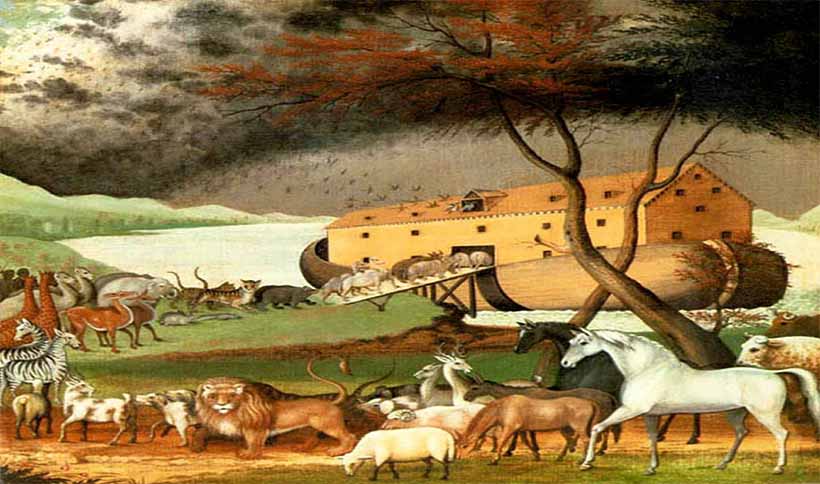
The Deluge is a universal myth present in almost every civilization and has its origins in a Sumerian cuneiform tablet relating to the Epic of Gilgamesh (1700 BC). Wishing to punish men for their corruption and violence, God would have triggered torrential rains and floods for 40 days and 40 nights as to exterminate all living things on Earth. Only some righteous, chosen by God to repopulate Earth, could escape the Deluge.
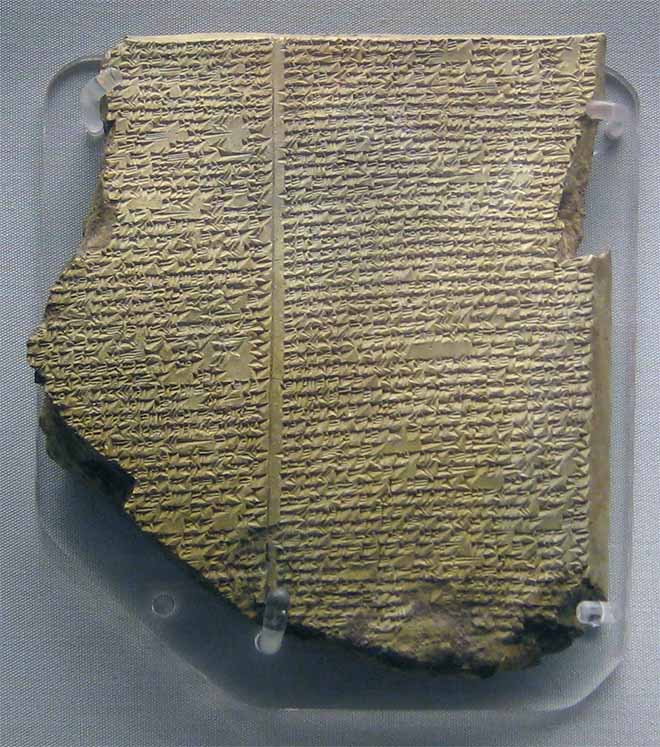
Noah's ark

The Bible tells that seven days before the Deluge, God entrusted Noah, righteous and upright, with the mission of building an ark that was to serve as a boat to protect the survivors of the Deluge. The orders of God were clear: Noah was to carry in the ark only his wife, his three sons and their wives as well as a male and female specimen of every kind of animal and bird on Earth in order to repopulate it after the Deluge. The ark was to be 300 cubits long (156 m), 50 cubits wide (26 m), 30 cubits high (15 m) and had to have 3 floors. Noah's ark was to be built with softwood and insulated with a layer of bitumen. Seven days later, waters began to break loose and covered the highest peaks of mountains. Noah's ark drifted for nearly 220 days before finally settling atop Mount Ararat in Turkey. Noticing a dove coming back with a twig in its beak, Noah realized that the Deluge was finally over. Waters had come down and all impure beings had disappeared.
Symbolism or historical reality?
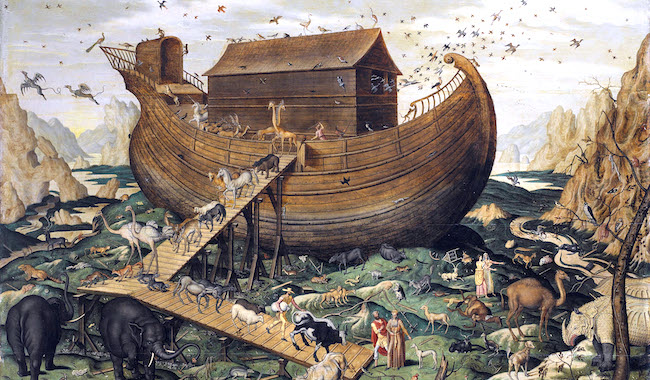
Is the myth of Noah's ark and that of the Deluge merely a symbolic account of divine chastisement or should one attempt to see in it a real historical event? According to sacred texts, the remains of Noah's ark, or at least what's left of it, would be located at about 5,000 meters high in Anatolia. Since 1829, many mountaineers and archaeologists have tried unsuccessfully to find fragments of Noah's ark in the snowy peaks of Mount Ararat. Some claim to have dug up some pieces while others claim to have been able to penetrate it... But until now evidence is unconvincing.
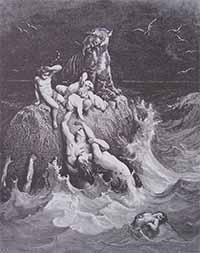
A universal fable
The story of the Deluge is one of the most widespread myths in the history of mankind, and there are nearly 300 different versions scattered around the globe. The fable would take root in the oldest civilization of Mesopotamia, Sumer, as seem to indicate clay tablets found in a palace of Nineveh. The Epic of Gilgamesh, legendary Sumerian king, recounts the Deluge in poetic form. The first craftsmen of the Bible would have known the myth of the Deluge through oral traditions and would've been inspired by it to write the sacred texts.
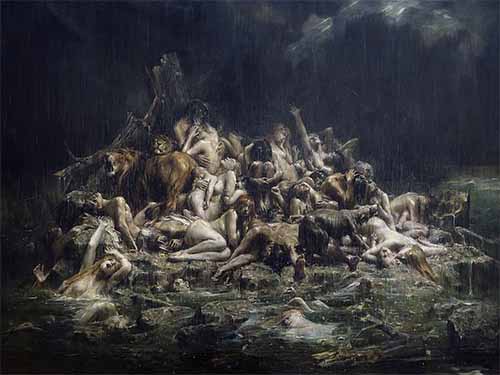
The story of the Deluge has spread to the extent that it is present as far away as Alaska. It is also found in California, Paraguay and Peru. In Greek mythology, Zeus causes a deluge but Deucalion and his wife Pyrrha manage to take refuge in a ship on Mount Parnassus. The Deluge episode is also present in China, Ireland and Thailand where it takes various forms.









































































































































































































































































































































